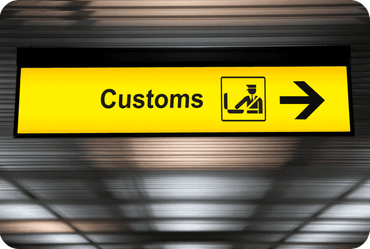
Key Factors to Consider When Choosing an International Shipping Partner
Ensuring timely, reasonably priced, dependable delivery depends on choosing the appropriate foreign shipping partner. Whether your business is e-commerce, personal shopper managing several shipments, or an individual buyer, selecting the correct logistics provider can affect customer happiness, delivery speed, and expenses. These are the main elements to give thought while choosing a foreign shipping partner.
1. Shipping Costs and Pricing Transparency
a. Competitive Pricing
Compare shipping rates from multiple carriers to ensure you're getting the best deal. Consider whether the provider offers flat-rate shipping, volume discounts, or special pricing for frequent shippers.
b. Hidden Fees and Surcharges
Some carriers charge additional fees for fuel, customs clearance, or last-mile delivery. Always check for:
- Customs brokerage fees
- Remote area surcharges
- Package handling fees
- Duties and taxes (DDP vs. DDU shipping options)
c. Insurance and Liability Coverage
For high-value items, ensure the shipping partner offers adequate insurance coverage and clear policies on lost or damaged shipments.
2. Shipping Speed and Delivery Options
a. Express vs. Economy Shipping
The right shipping partner should offer a range of options, from express delivery (1-3 days) to economy shipping (7-21 days) to suit different needs and budgets.
b. Transit Times and Reliability
Check estimated delivery times and read customer reviews to ensure on-time delivery performance. Some carriers are more reliable in certain regions than others.
c. Last-Mile Delivery Capabilities
Ensure the carrier has efficient last-mile delivery services, especially for countries with complex delivery networks.
3. Global Coverage and Shipping Network
a. Service Availability in Your Target Regions
Not all shipping providers operate in every country. Verify that the carrier services your desired origins and destinations and has established local partnerships.
b. Support for Multiple Shipping Methods
A good partner should offer different shipping modes, including:
- Air freight for fast delivery
- Ocean freight for large-volume, cost-effective shipping
- Land shipping for regional deliveries
c. Experience with Customs Clearance
The best shipping partners have strong customs expertise to ensure smooth clearance and minimize delays.
4. Tracking and Visibility
a. Real-Time Tracking
A good shipping provider should offer end-to-end tracking so both senders and recipients can monitor shipments in real-time.
b. Notifications and Updates
Look for carriers that provide automated notifications via email or SMS regarding shipment status, estimated delivery times, and customs clearance updates.
c. Technology Integration
For businesses, having an API or platform integration with order tracking systems can improve logistics efficiency.
5. Customer Support and Service Quality
a. Responsive Customer Service
In case of shipping issues, customs delays, or lost packages, responsive customer support is essential. Check if the provider offers:
- 24/7 customer service
- Multiple contact options (phone, email, live chat)
- Local support teams for international issues
b. Claims and Dispute Resolution
Understand the carrier’s policy on lost, delayed, or damaged packages and how they handle compensation claims.
6. Customs and Import/Export Regulations
a. Knowledge of Customs Requirements
Shipping internationally requires compliance with customs regulations, duties, and taxes. A good partner should:
- Provide guidance on HS codes and duty classifications
- Offer DDP (Delivered Duty Paid) shipping options
- Help with customs paperwork to avoid clearance delays
b. Restricted and Prohibited Items
Different countries have restrictions on certain items (e.g., electronics, liquids, perishables). Choose a partner familiar with these regulations to prevent shipping issues.
7. Sustainability and Environmental Responsibility
a. Eco-Friendly Shipping Options
Some carriers now offer carbon-neutral shipping, recyclable packaging, and fuel-efficient delivery options. If sustainability matters to your brand, choose a partner that aligns with these values.
b. Efficient Route Planning
A good shipping provider should optimize delivery routes to reduce fuel consumption and minimize environmental impact.
Conclusion
Choosing the right international shipping partner requires evaluating costs, reliability, global reach, tracking capabilities, customer support, and customs expertise. By selecting a carrier that aligns with your shipping needs and budget, you can ensure smooth, cost-effective, and timely deliveries.
- 1. Shipping Costs and Pricing Transparencya. Competitive Pricingb. Hidden Fees and Surchargesc. Insurance and Liability Coverage
- 2. Shipping Speed and Delivery Optionsa. Express vs. Economy Shippingb. Transit Times and Reliabilityc. Last-Mile Delivery Capabilities
- 3. Global Coverage and Shipping Networka. Service Availability in Your Target Regionsb. Support for Multiple Shipping Methodsc. Experience with Customs Clearance
- 4. Tracking and Visibilitya. Real-Time Trackingb. Notifications and Updatesc. Technology Integration
- 5. Customer Support and Service Qualitya. Responsive Customer Serviceb. Claims and Dispute Resolution
- 6. Customs and Import/Export Regulationsa. Knowledge of Customs Requirementsb. Restricted and Prohibited Items
- 7. Sustainability and Environmental Responsibilitya. Eco-Friendly Shipping Optionsb. Efficient Route Planning
- 8. Conclusion
Related Articles

Best Parcel Forwarding Strategies for Personal Shoppers

Cost-Effective International Shipping Methods for Buyers
